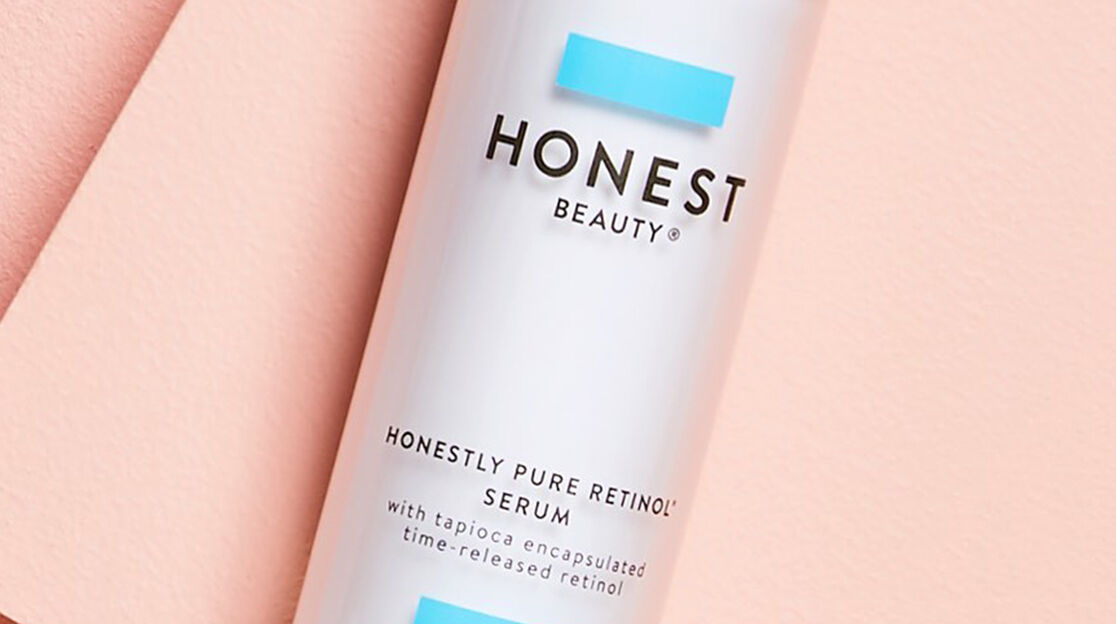The beauty world is buzzing with retinoids and retinol....and often uses the terms interchangeably. But the wrinkle-defying, collagen-spurring skin transformers aren’t quite the same. Their difference isn’t so much in what they do, but how (and how fast) they do it. Understanding how retinoid v. retinol work can help you know how much of this good thing your skin can handle.
What is the Difference Between Retinoid v. Retinol?
Both retinoids and retinol are derivatives of vitamin A, one of your body’s key go-tos for cell turnover, that ultimately converts to the active retinoic acid. The key difference between the two terms boils down to concentration. Retinoids are an umbrella term for the family of chemical compounds related to vitamin A, often in concentrations that require a prescription. Retinol, however, is a type of retinoid with a lower concentration of the active ingredient that makes it more readily available in over-the-counter products.
What are the Benefits of Retinoids?
Retinoids, including retinol, are lauded by skincare experts and beauty editors for their age-defying and acne-reducing results. Not only does retinoic acid improve the look of fine lines and wrinkles by amping up collagen production, but it also kicks cell turnover into high gear making it powerful enough to visibly improve skin texture and tone. (1, 2) With a resume like that, it’s no wonder retinoids skincare is all the rage right now.
Are Prescription Retinoids Better Than Retinol?
Not better, per se. But they are stronger and get faster results. Ultimately all retinoids, including retinol, are converted into active retinoic acid. But since retinol is a lower concentration than prescription-level retinoids and often used in ester form (retinyl esters or retinyl propionate on the label), it can take more steps to convert. That means it works more gradually, which is a good thing for more sensitive skin.
How to Use Retinoids the Right Way (Not the Dry-Out-Your-Skin Way)
The “right way” is more a question of when to use retinol and when to avoid it. We always recommend listening to your skin when fine-tuning your clean beauty skincare routine, especially with photosensitive vitamin A derivatives like retinol that don’t play well with the sun. If you have sensitive skin, chat with your derm before getting on the retinol bandwagon. Otherwise, follow these Honest tips to stay in the clear:
1. Always use retinol products in your nighttime routine. Sunlight can deactivate the retinoic acid and might cause skin irritation when they react together.
2. Ease into it if you’re new. Start once or twice a week for the first few to see how your skin is feeling about the situation before upping to every night.
3. Retinization — or a cycle of redness, drying and flaking — is normal when you first start using retinol. You can help it go away faster by using a replenishing moisturizer like Hydrogel Cream after your retinol serum.
4. Back off or swap out for something else — like our Vitamin C Serum — if your skin isn’t feeling it and needs a break.
5. If you’re a retinol regular, use only that serum the nights you use retinol.
6. Never, ever skip sunscreen (like, ever, but especially not if you’re using retinol on the daily).
Is Retinol OK to Use if You’re Pregnant?
Retinol does amazing things for our skin. BUT studies show developmental toxicity potential at high doses. Even though retinol/retinyl esters are actually required for normal reproductive function, too much of a good thing is still too much. We recommend opting out of retinol skincare products during pregnancy or breastfeeding. If and when you do reintroduce it into your clean skincare routine, remember to start slow!
Where to Find Retinol in Honest Beauty Products
Both Honest Beauty retinol serums use a tapioca encapsulated, time-release retinol to help minimize irritation. Clearing Night Serum also has wintergreen-derived salicylic acid to treat acne and help prevent future breakouts. Honestly Pure Retinol® Serum packs a one two punch against the signs of aging with two types of hyaluronic acid that help draw in moisture as well. No matter which retinol serum you use, keep in mind retinoids don’t work overnight, more like 6-12 weeks. So stick with it (using our tips above, of course)!
1. Randhawa, Manpreet & Rossetti, Dianne & Leyden, James & Fantasia, Jared & Zeichner, Joshua & Cula, Gabriela & Southall, Michael & Samaras, Samantha. (2015). One-year Topical Stabilized Retinol Treatment Improves Photodamaged Skin in a Double-blind, Vehicle-controlled Trial. Journal of drugs in dermatology : JDD. 14. 271-6.
2. Mukherjee S, Date A, Patravale V, Korting HC, Roeder A, Weindl G. Retinoids in the treatment of skin aging: an overview of clinical efficacy and safety. Clin Interv Aging. 2006;1(4):327–348. doi:10.2147/ciia.2006.1.4.327
We aim to provide you with the most honest and credible information possible. This article was reviewed for accuracy by The Honest Team and was written based on sources that are linked at the bottom of the article.
blog_review_statement



